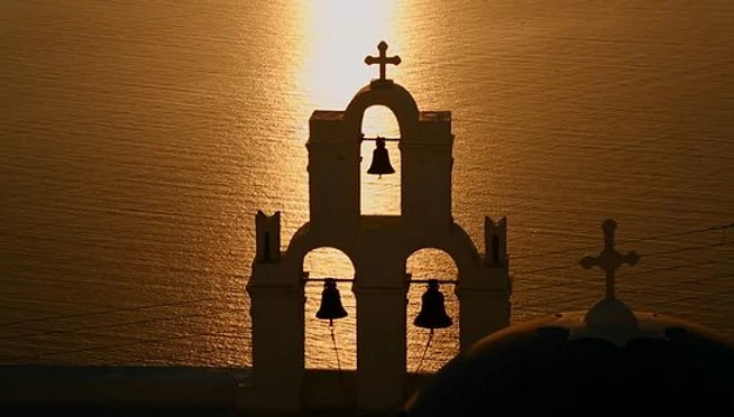
Ding… ding… ding… ding… the magical sound of the village church bell ringing conquered the silence of the evening. The musical high pitched notes of the clapper hitting against the mouth of the bell were melodious and mesmerizing. Bells are an integral part of the Goan Catholic church having brought to the state by their Portuguese colonizers 500 years ago. The use of bells in the church are plentiful. They were predominantly introduced to communicate with the people of the village when telecommunication was not yet invented.
The bell was rung three times around the time of death of a Parishner. First, the passing bell was rung when the person was still dying. Second the death knell was rung immediately after the death of the person. In some churches the age of the person was signified by the number of chimes, while in other churches the use of tellers to tell the sex of the departed was used. (Three times three chimes for a man; three times two chimes for a woman). Third, a bell was rung during the funeral as the body was brought towards the church which was known as the Lych bell or Funeral toll. The bell was also used as a call for prayer. The bell was rung three times a day: 6am, 12pm and 6pm to remind the parishners to recite the ‘Angelus’ prayer. The prayer bell was rung once in each direction at the rate of 1 ring per second. Vigorous ringing of the bell denoted a joyous occasion such as a baptism, holy communion or a wedding.
Each and every bell in Goa has a unique and mysterious history behind it. However today I will tell you the tale of two travelling bells, which are also Goa’s two biggest bells, the Golden bell of Se Cathedral and the bell of Our Lady of Immaculate Conception Church, Panjim.
The first travelling bell began its journey on a majestic ship traversing the mighty waters of the Indian Ocean and Arabian Sea. Unfortunately, an unexpected storm made its way and pushed the ship off balance. Plenty of water entered the ship and it began to sink. The master of the ship tried his best to keep the ship afloat and when nothing seemed to be working he fervently prayed to the Almighty asking for his assistance. He vowed that if he were to survive his fate, he would donate the ship’s bell to the church of the first village that his ship touched. Fortunately for all those on board, his prayers were answered and the ship landed at Divar Island. So in keeping with his promise he gave his ship’s beloved bell to the church of ‘Our Lady of Compassion’ in the village of Piedade in Divar. The bell was divine and upraised the façade of the church on the hillock. Unfortunately, when the bell was rung the high pitched loud resonating sound shattered the windows of the church and the houses in the vicinity. And it happened again and again whenever the bell was rung which caused a lot of concern to the parishners. So a deal was made, and the majestic bell was exchanged with the one at Se Cathedral. The bell got a new home and its rich magical tone gave it it’s new name—the golden bell!
Check out the beautiful church on the hillock at Divar Island and learn more of its secrets with Soul travelling {link www.soultravelling.in }‘Divar Island Exploration’ tour!
The second largest bell which now resides at Our Lady of Immaculate Conception Church in Panjim also has a travelling tale. This bell was constructed for the massive Church of Our Lady of Grace built by the Augustinian friars; which was considered the greatest Augustinian church in the Iberian world. In the 1800’s, the Portuguese Government of Goa began evicting many religious orders in Goa under its new repressive policies because of which in 1835 the church was abandoned. Within the next century almost the entire church collapsed with only one tower remaining. The bell was then moved to Fort Aguada in Sinquerim where it adorned the lighthouse tower and was rung to ask stranger’s in the sea to turn back and go away and to warn the Portuguese officials if danger was on its way. After a couple of decades this bell was finally moved to its current home that is Our Lady of Immaculate Conception in Panjim, with its distinct zigzag stairway, that was made famous by the Bollywood industry. Here the bell is rung on all special occasions giving a melodious sound that causes a sentimental feeling in all who hear it chime.
So next time you go to Goa listen to the sound of the church bells ringing and remember that every ring is steeped in centuries of history.





























